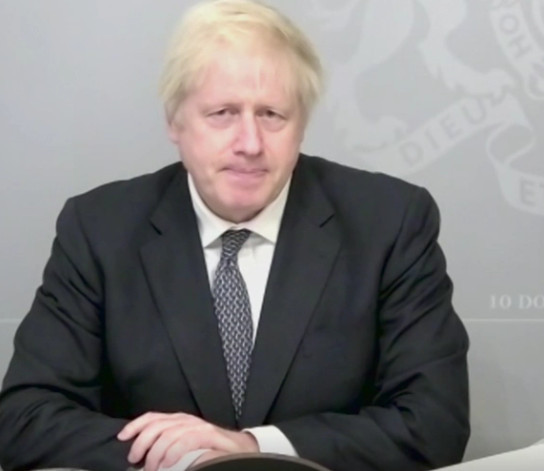The government will have been pleased with the headlines garnered by its announced £16.5bn MOD spending increase, but the increase will only temporarily mask an underlying problem that has not yet been addressed. At some point the MOD will need to strike a balance between its ambitions and the available budget. They have postponed the review which was supposed to square that circle and not yet set a new date.
Eye-catching claims about Artificial Intelligence and a ‘Space Force’ launching rockets in 2022 have certainly caught the imagination of journalists. However, the real lesson we should draw from these claims is that politicians find it much easier to excite the public with grand schemes than balance the books or answer difficult questions about Britain’s place in the world and what constitutes real security.
The Integrated Review
The government originally planned to resolve the MOD’s problems through an ‘Integrated Review‘. They intended for it to look at the work of the MOD, Foreign office and Department for International Development in the round. Crucially the review was to be carried out with Treasury input. The hope was to prevent the glaring disconnect between ambition and funds that had dogged the 2015 Strategic Defence and Security Review.
Originally planned for Autumn 2020, the MOD paused work on the Review between April and June due to the coronavirus outbreak. Bizarrely, when work recommenced the stated aim was to stick to the original autumn deadline, with publication alongside the Treasury’s Comprehensive Spending Review (CSR). A call for external evidence in August allowed only four weeks for submissions, and appears to have been largely carried out for the sake of appearances. The short time between the end of the call and publication meant that submissions were unlikely to substantively change the outcome of the review.
In late October the government bowed to the inevitable and postponed the Review. No replacement date has been given, but it will probably still coincide with the Treasury’s multi-year CSR, which was also postponed. Defence analysts pointed out that the lack of a budgetary framework made it very difficult for the MOD to begin its major new projects, including the new nuclear warhead.
The spending increase
The £16.5bn spending announcement is clearly in-part intended to prevent the MOD’s plans from being derailed by the postponement of the Integrated Review. The money will be split over the next four years, and appears to be in addition to a previous pledge to increase the MOD budget by 0.5% a year. Even spread over four years, there is no doubt that this is a substantial increase to a total annual budget of £41.3bn this year, but in reality it doesn’t leave as much leeway for the MOD as the headlines would suggest.
The National Audit Office (NAO) publishes an annual report on the MOD’s planned spending on equipment over the next ten years. Their report on the 2019-2029 plan showed that the MOD’s estimated funding shortfall in the equipment plan could be as large as £13bn. The NAO said that even this higher figure contained “over-optimistic” assumptions. The MOD reduced its figures by £11.9bn to account for projects being delivered late or over-cautious cost estimates, but they removed these costs from the plan entirely, rather than deferring or re-estimating them. The plan also included £4.7bn of efficiency savings, double the estimate savings in the previous year’s plan.
In its 2018 overview of MOD nuclear spending, the NAO reported that MOD figures showed a £2.9bn shortfall between 2018 and 2028 on what is known as the Defence Nuclear Enterprise. Neither those figures nor the current equipment plan include the new nuclear warhead or the new nuclear submarine dock at Devonport. These are both major spending items which are likely to cost at least £9.8bn and £1bn respectively, although the costs will fall over a longer time period than the next four years.
Reality behind the headlines
Taken together, the financial holes in the MOD’s plans could easily account for most of the announced spending. Whatever is left over may be enough for the promised spending on artificial intelligence and hackers, but the suggestion that will it be enough for the UK to develop a military capability in space is not credible. What appears to be on the cards is some additional funding for an already existing plan to launch small satellites using an as-yet-untested commercially-built rocket with a 3D printed engine. The government apparently did not consult the companies involved before the announcement.
Grandiose plans that expertly garner media attention but never actually come to fruition are an established part of Boris Johnson’s political play-book, but the underlying story of this funding boost is a familiar one: the MOD is once again deferring the inevitable. They have postponed the long-promised Integrated Review. With its contents already preempted by these announcements and the huge funding increase, it is more likely to end up as an exercise in retroactive justification than a thorough re-examination of spending and activities from first principles.
Despite the hopes of the defence establishment, and despite the huge sums of public money involved, the spending increase is just the latest example of the UK government failing to level with the public and articulate a realistic and affordable vision of the UK’s role in the world. Instead, it has once again chosen the easy route of distracting us with promises of shiny new military technology and hoping that nobody asks any difficult questions.

